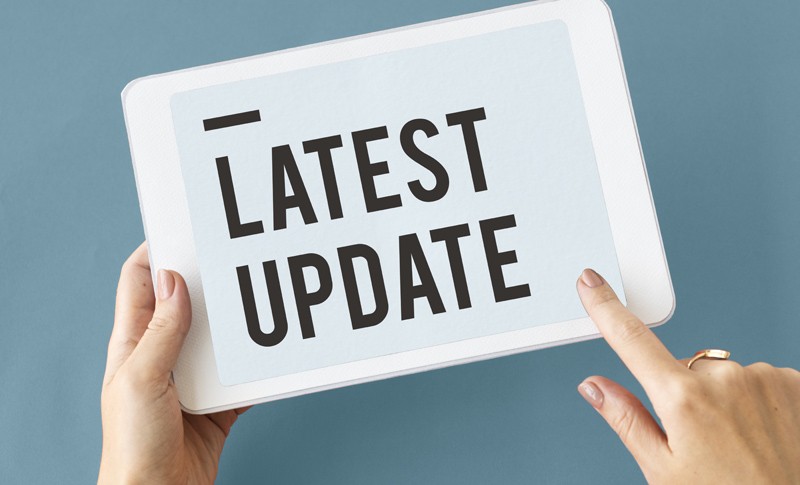Discover the FREE PLAYBOOK from World’s Best Marketers Claim Your Copy Now!
By Deborah Kurfiss, Umbrella Communications & Content Director on Apr 12, 2024

It’s a never-ending job to keep on top of SEO, because Google is constantly changing its algorithms. Last month Google announced its March 2024 algorithm update, one of the most significant algorithmic changes to hit the digital landscape in recent years, impacting businesses of all sizes and sectors. In fact, Google announced two updates at the same time, one affecting the core algorithm and one affecting spam policy.
Whether you perform SEO yourself or use white label SEO services, as a marketer, you need to understand how this may change your clients’ search engine rankings and what actions should be taken for your clients to avoid losing Internet visibility and traffic.
At its core, the March 2024 algorithm update is designed to prioritize user experience and the authenticity of content. These are priorities Google is always trying to improve. The update introduces sophisticated AI-driven mechanisms that enable Google search to better understand user intent, evaluate content quality and ensure that users are provided with the most relevant, accurate, and engaging content. Unlike previous updates, which often focused on one or two specific areas, this update encompasses changes in search algorithms, content evaluation processes, and even the way advertisements are displayed and ranked.
Following is a summary of the key changes.
Google has made algorithmic enhancements to its core ranking systems to prioritize the most helpful information on the web and minimize unoriginal content in search results. This is part of a continuous effort since 2022 to lower the presence of unhelpful, unoriginal content appearing in search. Google says it expects this update combined with their previous efforts to reduce low-quality, unoriginal content in search results by 40%.
Google is making many updates to their spam policies to defend against new spam practices to prevent unoriginal and low quality content appearing in search results.
These include:
Scaled Content Abuse: The update takes action against mass-produced content that offers little to no value to users, no matter whether it was created by automation or humans. This is to protect against search results that pose as offering answers but in reality, add no value.
Site Reputation Abuse: The update addresses the practice of publishing low-quality content on high-authority domains to manipulate search rankings.
Expired Domain Abuse: Sometimes a business or individual may buy an expired domain in order to mislead an audience into thinking that the content they publish is part of the older, respected site, when in fact the new owners only want to boost search rankings using unoriginal and low value content. The new update takes measures against the repurposing of expired domains for publishing low-quality content to gain SEO advantages
Every time Google announces algorithm and policy updates, marketers need to correct their course so their clients don’t lose search rankings. Here’s what you can do, or what you can expect your white label SEO experts to do.
As Google becomes stricter in rewarding original content and penalizing the unoriginal, expect web sites with helpful, user-focused content to see an improvement in rankings, while sites with unoriginal or low-quality content to get lower rankings and visibility.
In other words, some of your clients’ content that previously passed muster but really wasn’t all that helpful may now be considered spam. Google is becoming increasingly less tolerant of the low quality, unoriginal content that is currently rampant on the Internet in large part due to generic AI-generation.
If you are using AI-generated content with little alteration or reusing your human-written content in multiple places, expect to be penalized. It’s no secret that AI-generated content is what has spurred Google to action on this update, because AI programs reuse, remix and regurgitate content that has already been published elsewhere.
Rather than just publishing filler content, think about what you can offer your clients’ audiences that is of real value. Stop keyword stuffing and really think deeply about what will help your client’s audience.
Content is vitally important, but so is your client’s audience’s journey to locating and using that content. User-friendly navigation, good page speed, interactivity, visual stability and adaptation to mobile devices are more critical than ever to garnering good search rankings with this update.
While traditional SEO practices remain relevant, your or your white label SEO experts need to be refined to meet the requirements of Google’s March 24 algorithm update. This means focusing on semantic search optimization, improving site structure, and ensuring that all content is designed to meet the specific needs of users.
When writing content and guiding people to it, always consider the goal of the search. If your client has a pizza restaurant, you don’t want to attract people looking for pizza recipes. So, examine content for anything that may lead search engines astray and make your site specific to your audience’s search intentions.
If you aren’t ready for the latest update, don’t worry. Umbrella’s experts are. For a free consultation about how to improve your clients’ search rankings, make them more visible and drive more traffic, go to the Umbrella website or call (866) 760-2638.

Book a call today to discuss how we can help your marketing agency grow.
